
The words loose and lose are often confused because of their similar spellings, but there's a big difference between the two. Many writers accidentally use the wrong one.
So how do you know if you’re using them correctly?
The short answer is that lose with a single O is a verb that means “to not win”, or “to misplace something.” Loose with a double O is an adjective that is the opposite of “tight.”
This article will explain the meanings of these two words and give you tips for remembering which one to use.
The Definitions of Loose vs. Lose
Definition of Loose
Loose can be an adjective that means “not tightly fixed in place.” It can also be a verb that means “to free from restraints.”
For example:
- The child had a loose tooth.
- These pants are too loose.
- She let loose after her last exam.
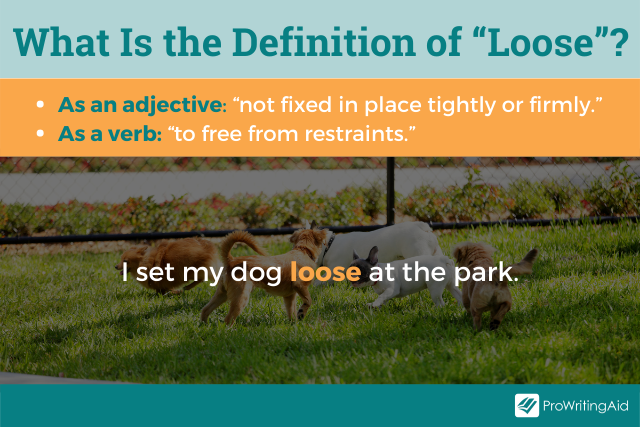
Definition of Lose
Lose is a verb that means “to cause (something) to cease to be in one’s possession, often because of unfortunate or unknown reasons.”
For example:
- If we don't score soon, we’ll lose the match.
- I’d better not lose my keys again.
- Did you lose track of the time?
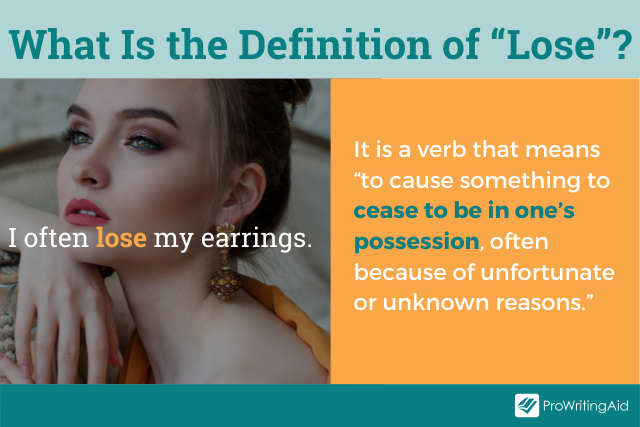
Phrases that Use Loose and Lose
There are many phrases and idioms that contain these words. Here’s a quick guide on how to use the right word in each phrase.
Phrases that Use Loose
- Loose change: coins that a person is carrying
- Loose cannon: a dangerously uncontrollable person or thing
- Loose-lipped: given to unrestrained talk
- Hang loose: to remain calm or relaxed
- Fast and loose: to act in a reckless or irresponsible manner
- Have a screw loose: to be mentally unbalanced
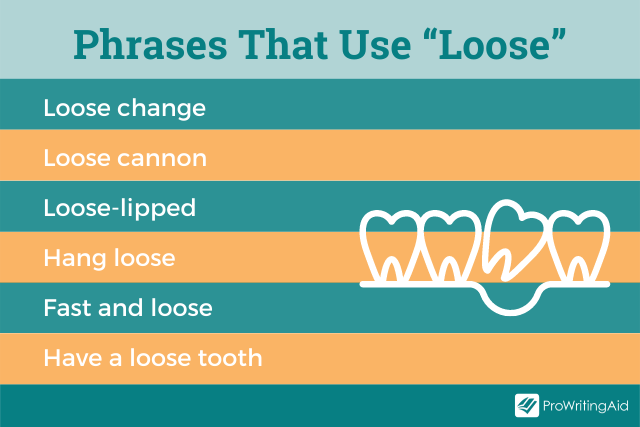
Phrases that Use Lose
- Lose your temper: to get angry
- Lose your mind: to go insane
- Lose your way: to become lost
- Lose your head: to become very upset or angry
- Lose your nerve: to become afraid
- Lose count: to forget a number
- Lose face: to stop holding other people's respect
- Lose sleep over: to worry about something so much that one cannot sleep
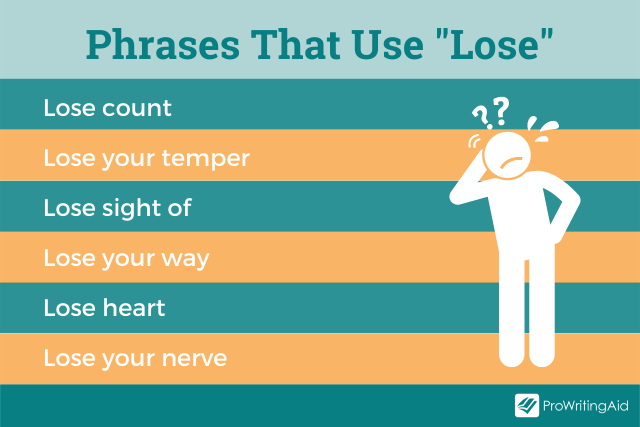
How to Use Loose vs. Lose in a Sentence
Let’s look at some examples of sentences that use the words loose and lose correctly.
Examples of Loose
“A hush is a dangerous thing. Silence is solid and dependable, but a hush is expectant, like a pregnant pause; it invites mischief, like a loose thread begging to be pulled." – The Keeper of Lost Things by Ruth Hogan
"Every hinge in the house was loose and our doors fell out with the frequency of baby teeth." – Bestiary by K-Ming Chang
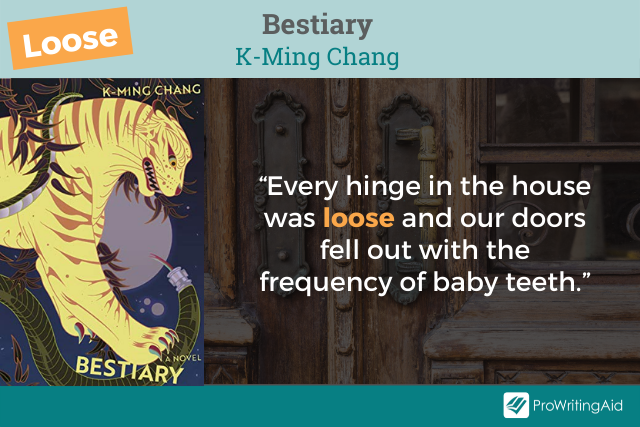
“He feels that nineteen-year-olds, almost all of them, don’t have their feet on the ground. They’re turning loose from their families and they haven’t found anything else to moor themselves to; they blow like tumbleweed.” – The Searcher by C. Tana French
“She couldn’t have been happier if Ted Bundy were loose in the Bay.” – Nothing Gold Can Stay by Dana Stabenow
“Bond pulled the grille loose from the flex and got down from the chair.” – Doctor No by Ian Fleming
Examples of Lose
“I'll lose everything this time.” – The Heart of Devin MacKade by Nora Roberts
“A man can lose a third of his life in sleep.” – Demon Lord of Karanda by David Eddings

“Excellent—didn’t lose anyone along the way!” – The Hound of Rowan by Henry H. Neff
“To show you were wounded from battle was to lose the war.” – White Ivy by Susie Yang
“But sometimes, you know, when you get too hungry, you lose your appetite.” – Cropper's Cabin by Jim Thompson
Tips for Remembering These Commonly Confused Words
A good way to remember the difference is that "lose" has lost an O. Imagine the O dropping out of the word.
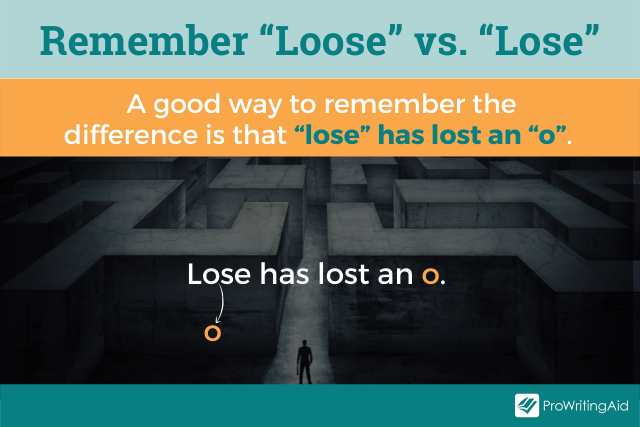
Another way to remember the difference is by noticing that the word "loose" is spelled like "loo." Imagine sitting on a loo that is not firmly fixed to the wall.
It wobbles all over the place, and then you fall off. Strong mental images like this can help you to remember the difference between commonly confused words.
Now you know the difference between loose and lose. What other words are you always getting confused? Let us know in the comments.
CTA

